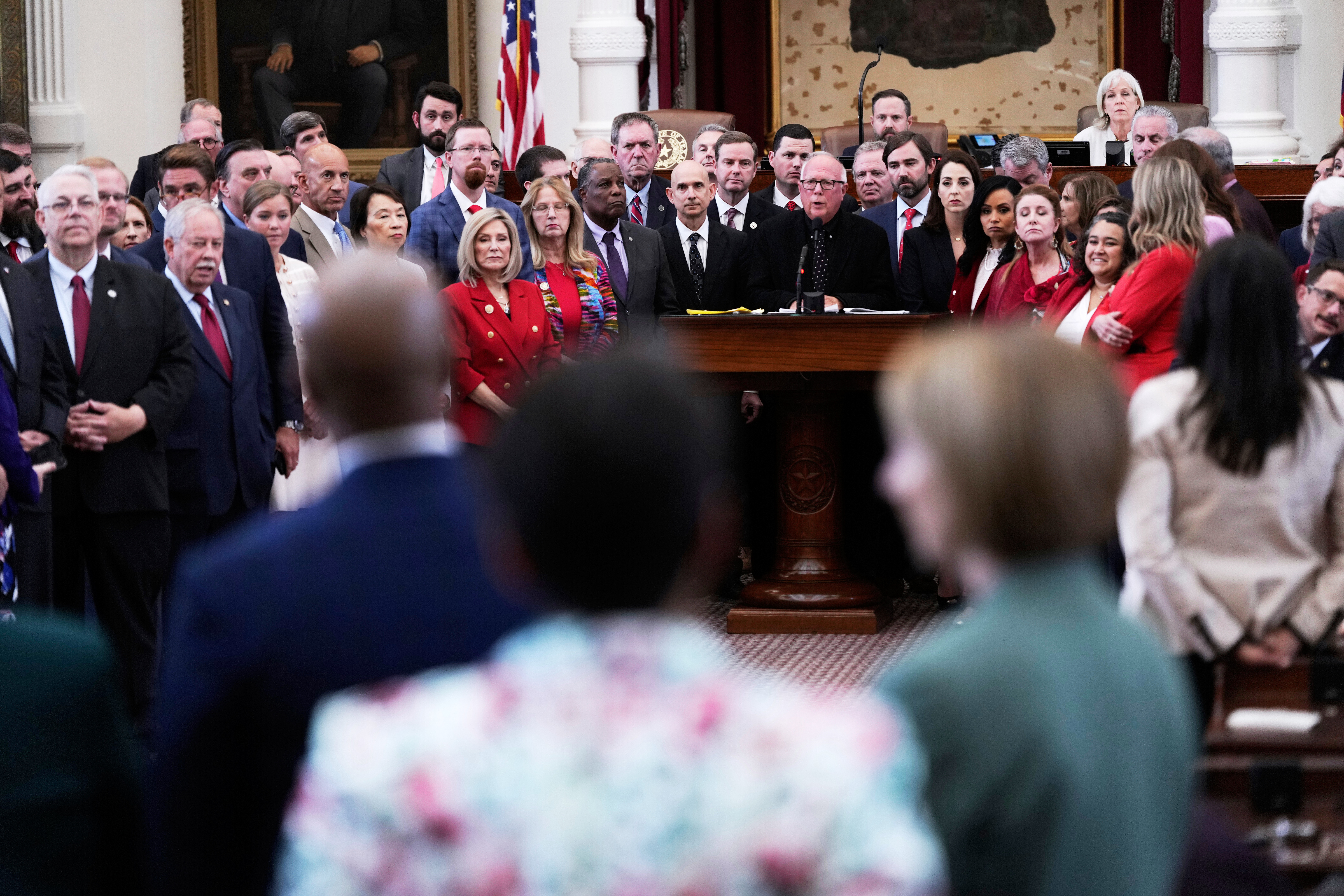August 23, 2025
Texas Republicans Push Through Trump-Backed Gerrymandering Plan

In a move that solidifies former President Donald Trump's influence over Republican strategies, Texas GOP lawmakers have successfully passed a new congressional map that significantly tilts the electoral scales in their favor. The map, approved early Saturday by a party-line vote in the state Senate, concludes weeks of heated debates and partisan skirmishes.
The process took a decisive turn when Republican leaders employed a procedural tactic to thwart a filibuster attempt by a Democratic senator, expediting the vote. This maneuver underscores the Republicans' determination to secure their grip on power, with the newly approved map potentially flipping up to five congressional seats from blue to red.
Governor Greg Abbott, a Republican, is expected to sign the bill swiftly, putting an end to the contentious redistricting saga that has roiled Texas politics. This aggressive redistricting is strategically timed to influence the 2024 midterm elections and is seen as a critical move to maintain the narrow three-seat majority the GOP holds in the House.
The new configuration aims to increase the number of Republican-held seats in Texas from 25 to 30. This change is pivotal as it occurs in an off-cycle redistricting period, raising questions and criticisms about the timing and the motives behind the map's redraw.
The Texas decision has already sparked a national response, particularly from California, where lawmakers, in an unprecedented counteraction, have passed a measure to redraw their state’s congressional map. This measure proposes the creation of five new Democratic-leaning seats, effectively balancing the anticipated Republican gains in Texas. California's approach, bypassing the state's independent redistricting commission for this cycle, has been framed by Democratic Governor Gavin Newsom as a crucial step to "preserve democracy".
This tit-for-tat between the two largest U.S. states highlights the increasingly strategic role of gerrymandering in national politics, setting the stage for a broader and more intense partisan battle as both parties gear up for the next election cycle. As these political chess moves unfold, the impact on voter representation and the democratic process continues to stir debate and concern among citizens and political analysts alike.